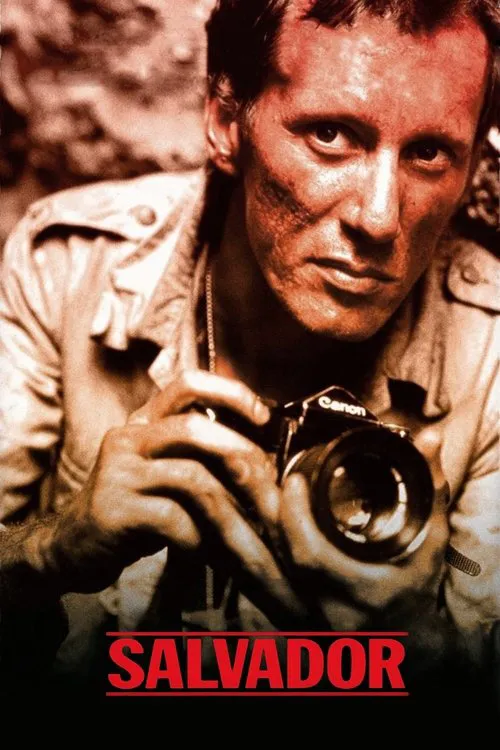Salvador

Plot
Shot on location in El Salvador and Mexico, 'Salvador' is a 1986 drama film directed by Oliver Stone, who was also one of the screenwriters of the film. The movie serves as the director's personal take on the tumultuous 1980s during the height of the Cold War. It tells an unflinching and raw story that delves into the depths of human suffering, conflict, and the blurred lines between right and wrong. Richard Boyle, played by James Woods, is a journalist covering the Salvadoran Civil War between the leftist guerrilla groups, led by the National Resistance, and the right-wing military dictatorship. Boyle's primary goal is to find his long-term girlfriend, Lisa, who was separated from him during his initial days in the war-torn city. As Boyle delves deeper into the conflict, he finds himself increasingly caught up in the chaos, struggling to find a moral compass in the face of the unrelenting violence. Through Boyle's interactions with people from diverse backgrounds, from the poor and oppressed to government officials and soldiers, the film highlights the complexity of the civil war. Boyle soon discovers how deep the divisions between the parties run, and how the government employs brutal tactics to silence its opposition. At one point, he meets two American priests, who have been kidnapped by the soldiers and are awaiting execution. Boyle manages to secure their release by bribing one of the officers with money he had intended to use for his investigation. Throughout his time in El Salvador, Boyle becomes embroiled in a web of intrigue and danger. As he tries to locate Lisa, who is hiding with her children, the situation becomes increasingly desperate. Boyle encounters various military officials and guerrilla fighters who, despite their differing ideologies, share a common goal – to protect their own and preserve their worldview. Boyle finds himself walking a tightrope between these warring groups, often using his skills and ingenuity to get out of difficult situations. One of the most striking aspects of 'Salvador' is its candid portrayal of the atrocities committed by both sides. Boyle is a witness to the violence, corruption, and brutality that permeate the war. This unflinching portrayal raises questions about morality, loyalty, and the responsibility of the media in times of conflict. Oliver Stone's direction is characterized by a gritty realism, as he pushes the boundaries of what is acceptable on screen. The film's cinematography is often claustrophobic and raw, capturing the claustrophobic atmosphere of a war-stricken city. James Woods gives a raw and intense performance as Boyle, who is both drawn and repelled by the conflict he is covering. The film's depiction of the civil war in El Salvador was unprecedented at the time of its release. It shed light on the suffering of the people and the involvement of foreign powers in the conflict. 'Salvador' received significant attention and controversy for its candid portrayal of the war and American involvement. The film was banned in El Salvador, and Boyle's character faced accusations of promoting the communist ideology. In conclusion, 'Salvador' is a harrowing drama that captures the essence of a nation torn apart by conflict. Oliver Stone's direction, combined with James Woods' intense performance, delivers a visceral and unflinching portrayal of human suffering. The film's exploration of war, violence, and morality is both raw and thought-provoking, leaving viewers questioning the consequences of involvement in conflict. With its candid approach to the Salvadoran Civil War, 'Salvador' is an important and unsettling film that still resonates today.
Reviews
Recommendations




